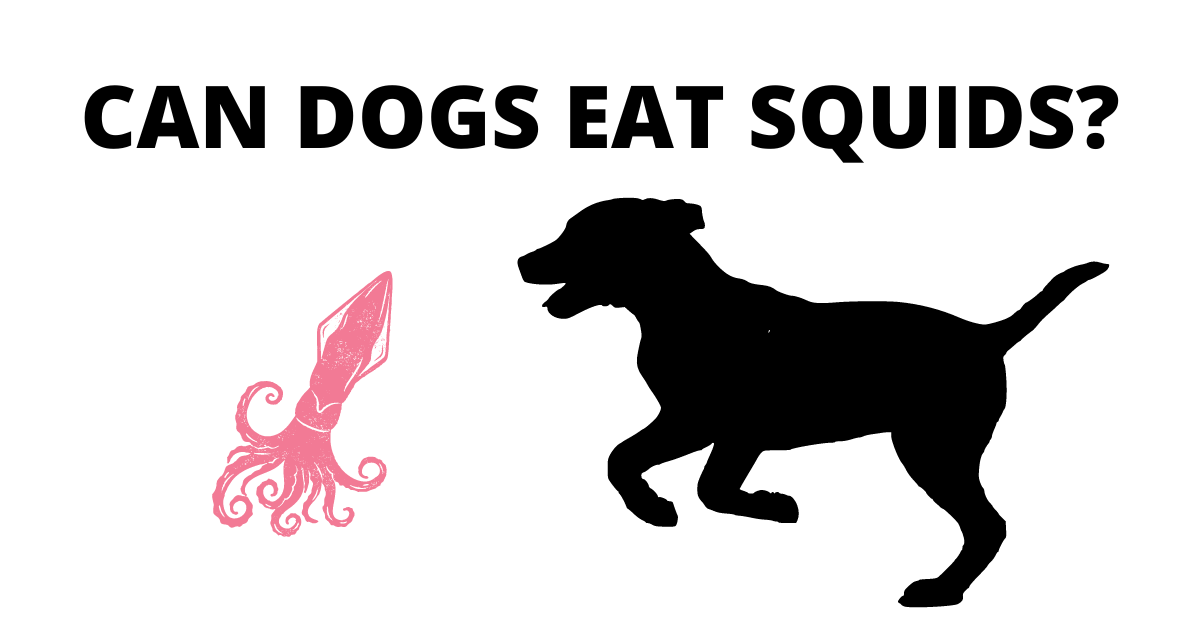Can dogs eat squid? Well, the answer is yes, dogs can eat squid.
As dog owners, it’s normal for us to give a taste of our food to the dog. Dogs are curious animals and they love to try new kinds of food. Sometimes they try to eat and lick our leftover food. But you need to be careful when they do this. Some dog experts like Cynthia Maro say that some foods are very bad for their teeth and others can be deadly. We will talk about these foods in the later part of this article.
When we are eating or cooking something, they get attracted to the smell and want to know what it tastes like. Being a veterinarian let me tell you that dogs cannot eat everything humans can. But, fortunately, squids don’t fall on the list of forbidden food items.
In this article, I will share all the information that you need about feeding squid to your dog. This article will tell you the right amount of suid you should be giving to your dog, what benefits squid will provide to your dog, and what signs your dog can show in case it gets squid poisoning.
Can dogs eat squid?
Squid is safe for dogs, and dogs can eat squid as long as it is given in a measured amount. Squid is a highly proteinaceous food for dogs with low calories. It does not show any adverse effects in dogs, but you should consult your veterinarian to be on the safe side.
What are the benefits of feeding squid to my dog?
Squid contains a high amount of :
- Protein (up to 45% muscle build-up, proper body functioning)
- HDL fat (good for brain functioning, a healthy form of fat)
- Calcium (for proper heart functioning, bones and teeth growth, muscle contraction, etc.)
- Low fat (low calories)
- Vitamins (contains Vitamin B2, vitamin B3, Vitamin B12, and Vitamin E)
- Amino acids (help in the formation of protein)
It also contains some of the rare minerals that are usually not available in a regular diet, like:
- Copper ( iron absorption, formation of red blood cells)
- Zinc (healthy and shiny fur that helps improve your dog’s immunity)
- Potassium (helps in maintaining of normal heartbeat)
If your dog is underweight, squid can help it gain weight due to its high protein level.

How should I feed squid to my dog?
You might wonder in what form can dogs eat squid or can dogs eat dried squid? Squids are eaten in many forms, so which one is safe for dogs-fried, dried, cooked, or raw?
Roasted, boiled, steamed, and baked squids can be fed to your dog. Steaming preserves the nutritious value of squids while feeding squids in boiled form is the worst form as many nutrients are lost during boiling.
Fried squids are Nay-Nay for dogs. Do not feed squids to your dog in fried foam. It increases the amount of fat and cholesterol, which is not good for health.
Keep the squid as simple and plain as possible. Do not use any seasonings.
How much squid should I feed my dog?
Are dogs allowed squid? If Yes, then how much? Do not feed squid to your dog regularly. Feed a calculated amount only. Though squid is healthier than other kinds of seafood, it can still cause health problems in dogs if fed routinely.
Add a few slices of squid to your dog’s meal a maximum of two times a week. But always consult your veterinarian before feeding squids to your dog.
What are the signs of squid poisoning if I feed too much squid to my dog?
Is squid toxic to dogs? Squids are not usually poisonous to dogs. But it can cause problems when fed in more than recommended amounts.
Here are some of the signs of squid poisoning in dogs:
- Abdominal pain
- Vomiting
- Diarrhea
- Lethargy
- Allergic reactions
- Paralysis
If your dog is prone to allergic reactions, you can try giving him foods that are good against allergies.
Why are squids bad for dogs?
Is it safe for dogs to eat squid? As mentioned above, squids are not bad for dogs if given in smaller amounts. But dogs can suffer from health problems if they are fed squid more than the recommended amount. Here are some reasons you shouldn’t feed squid more than the recommended amount.
- Mercury poisoning
Squid contains a small amount of mercury but if squid is fed in a larger amount, the amount of mercury can reach hazardous levels. This can lead to mercury poisoning. Mercury poisoning can cause coma, kidney failure, cancer, seizures, blindness, and death.
- Cholesterol
Feeding a high amount of squid can increase the cholesterol intake of your dog. A high amount of cholesterol can lead to weight gain, heart problems, and liver and kidney issues.
- Allergic Reactions
Your dog can be allergic to squids. Signs of allergic reactions are swollen throat, inflammation of foot pads and eyes, and red patches on the skin. If any of these happens, get your dog to the vet, and do not feed squid to your dog ever again. Skin itching, skin redness, and breathing difficulties are also seen in the case of food allergies.
Is it okay for dogs to eat seafood?
Cooked seafood without bones or shells can be a healthy addition to a dog’s diet, but be cautious of any potential allergies or sensitivities.
Can dogs eat squid or octopus?
Yes, dogs can eat squid or octopus as long as they are properly cooked, free of any seasoning or additives, and served in appropriate portions.
Can dogs eat fried squid?
It is not recommended to feed dogs fried squid or any fried foods. The high-fat content and added oils used in frying can be harmful to dogs.
Can dogs eat shrimp and squid?
Yes, dogs can eat cooked shrimp and squid without any seasonings or additives. Ensure that shells, tails, and bones are removed.
Conclusion:
Can dogs eat squids? Yes, your dog can eat squid but in a controlled amount and in the recommended form. Squids are healthy for your dog. They have many health benefits and are an excellent source of protein. But feeding too much squid to your dog will be followed by many health problems.
Here are some interesting articles related to food choices for dogs:
